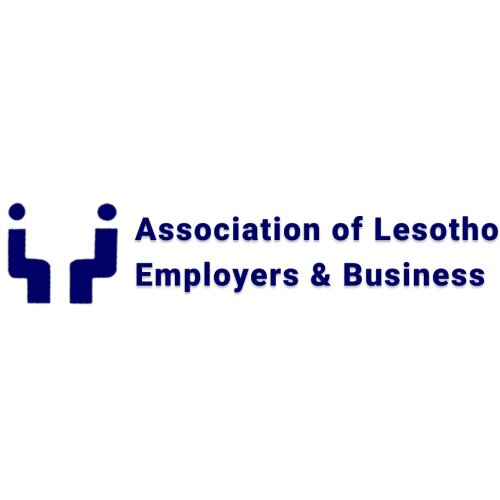Best Project Finance Lawyers in Lesotho
Share your needs with us, get contacted by law firms.
Free. Takes 2 min.
Or refine your search by selecting a city:
List of the best lawyers in Lesotho
About Project Finance Law in Lesotho
Project finance is a method of funding large-scale infrastructure and industrial projects by using the project's cash flow to repay the loans, rather than relying on the balance sheets of the sponsors. In Lesotho, project finance plays a crucial role in supporting developments in sectors such as energy, transport, water, and construction. Due to the country's need for infrastructure improvements and public-private partnerships, both local and foreign investors frequently turn to project finance arrangements to manage risk and promote growth. Lesotho's legal system, a blend of Roman-Dutch common law and statutory law, sets the framework for structuring, implementing, and managing project-financed ventures.
Why You May Need a Lawyer
Seeking legal assistance is paramount in project finance transactions, given their complexity, value, and risk. You might need a lawyer in the following situations:
- Negotiating and drafting project finance agreements and documents
- Understanding regulatory requirements for major infrastructure projects
- Facilitating partnerships between public entities and private investors
- Structuring loan syndications and risk allocation among stakeholders
- Ensuring compliance with local laws concerning land, environment, and taxation
- Dispute resolution between parties to a project finance transaction
- Conducting legal due diligence on assets, titles, and contracts
- Navigating permits, licenses, and government approvals
- Advising on security arrangements and collateralization of project assets
- Managing insolvency risk and enforcing lender protections
A qualified lawyer ensures your interests are protected, reduces legal risks, and helps all parties achieve a favorable and compliant outcome.
Local Laws Overview
Project finance in Lesotho operates within a framework that includes several relevant laws and regulatory requirements. Key legal aspects include:
- Investment Promotion Act: This regulates the participation of foreign investors and sets guidelines for incentives and approvals.
- Public-Private Partnership (PPP) Regulations: These rules guide the formation of PPPs, including bidding, contracting, and performance standards.
- Financial Institutions Act: Governs how banks and lenders can participate in project finance, including loan terms and security interests.
- Laws on Security Interests: Registration and enforcement of mortgages, pledges, liens, and other forms of security are guided by local statutes.
- Environmental and Social Impact Regulations: Projects must comply with environmental laws concerning land use, pollution, and community impact.
- Procurement Act: Provides rules for government contracting and competitive bidding on public projects.
- Tax Laws: Address the fiscal incentives, exemptions, and obligations for project entities.
The interaction of these laws determines the viability, structure, and compliance requirements of project finance initiatives in Lesotho.
Frequently Asked Questions
What is project finance and how does it work in Lesotho?
Project finance is a way of funding large projects by using the project's future income as the main source for loan repayment. In Lesotho, it is often used for infrastructure like dams, roads, and power generation, with local laws guiding contracts and investor protections.
Do I need approval from the government for a project finance deal?
Yes, most large-scale projects, especially those involving public assets or services, require approval from relevant government ministries, regulatory authorities, or public agencies.
Can foreign investors participate in project finance transactions?
Yes, foreign investors are allowed and even encouraged to invest in project-financed ventures, but must adhere to the Investment Promotion Act and any sector-specific restrictions or requirements.
What kind of security can be used in project finance in Lesotho?
Security arrangements may include mortgages over land, charges over assets, pledges of shares, and assignment of project receivables. The enforceability depends on correct registration and local legal formalities.
What is a Public-Private Partnership (PPP)?
A PPP is a collaboration between government entities and private sector participants to finance, build, and operate projects, often using project finance structures to allocate risks and rewards.
What are the key risks in project finance in Lesotho?
Risks include political changes, regulatory compliance, land rights, environmental concerns, availability of local finance, and difficulties in enforcing contracts or security.
Are there incentives for investors in project finance deals?
Lesotho offers various incentives such as tax holidays, import duty exemptions, and investment guarantees for qualifying projects, especially in priority sectors.
How long does it take to set up a project finance transaction?
The timeline can vary widely but typically ranges from several months to over a year, depending on project size, regulatory approvals, financing arrangements, and negotiation of commercial terms.
How are disputes resolved in project finance agreements?
Disputes may be resolved through negotiation, mediation, domestic courts, or arbitration, depending on the contract terms. Lesotho recognizes both local and international arbitration clauses.
Do I need local representation for my project finance transaction?
Yes, local legal expertise is essential to navigate Lesotho's specific laws, registration requirements, and administrative processes, ensuring your project is legally sound and compliant.
Additional Resources
Here are some resources and organizations relevant to project finance in Lesotho:
- Lesotho National Development Corporation (LNDC): Facilitates investment and provides information on industrial and infrastructure projects.
- Ministry of Finance: Oversees public finance, taxation, and PPP frameworks.
- Lesotho Revenue Authority (LRA): Manages tax matters and incentives for project investors.
- Lesotho Public Procurement Authority: Regulates government contracting and procurement for public projects.
- Registrar General’s Office: Handles registration of companies, securities, and land titles.
- Legal practitioners and law firms specializing in project finance and infrastructure law.
These agencies and professionals can provide guidance, documentation, and regulatory support throughout your project's life cycle.
Next Steps
If you are considering a project finance transaction in Lesotho, it is important to take the following steps:
- Clearly define your project objectives, scope, and financial requirements
- Conduct preliminary due diligence to understand regulatory, environmental, and land issues
- Engage a qualified local lawyer with experience in project finance and Lesotho laws
- Contact relevant governmental bodies for information on permits, licenses, and incentives
- Discuss possible risk mitigation strategies with financial advisors and insurers
- Prepare draft agreements and documentation with legal counsel
- Ensure compliance by following all registration and approval processes
- Maintain open communication among project stakeholders
Taking these steps with proper legal guidance will help you avoid common pitfalls, expedite regulatory approvals, and increase the likelihood of success for your project finance transaction in Lesotho.
Lawzana helps you find the best lawyers and law firms in Lesotho through a curated and pre-screened list of qualified legal professionals. Our platform offers rankings and detailed profiles of attorneys and law firms, allowing you to compare based on practice areas, including Project Finance, experience, and client feedback.
Each profile includes a description of the firm's areas of practice, client reviews, team members and partners, year of establishment, spoken languages, office locations, contact information, social media presence, and any published articles or resources. Most firms on our platform speak English and are experienced in both local and international legal matters.
Get a quote from top-rated law firms in Lesotho — quickly, securely, and without unnecessary hassle.
Disclaimer:
The information provided on this page is for general informational purposes only and does not constitute legal advice. While we strive to ensure the accuracy and relevance of the content, legal information may change over time, and interpretations of the law can vary. You should always consult with a qualified legal professional for advice specific to your situation.
We disclaim all liability for actions taken or not taken based on the content of this page. If you believe any information is incorrect or outdated, please contact us, and we will review and update it where appropriate.
Browse project finance law firms by city in Lesotho
Refine your search by selecting a city.












